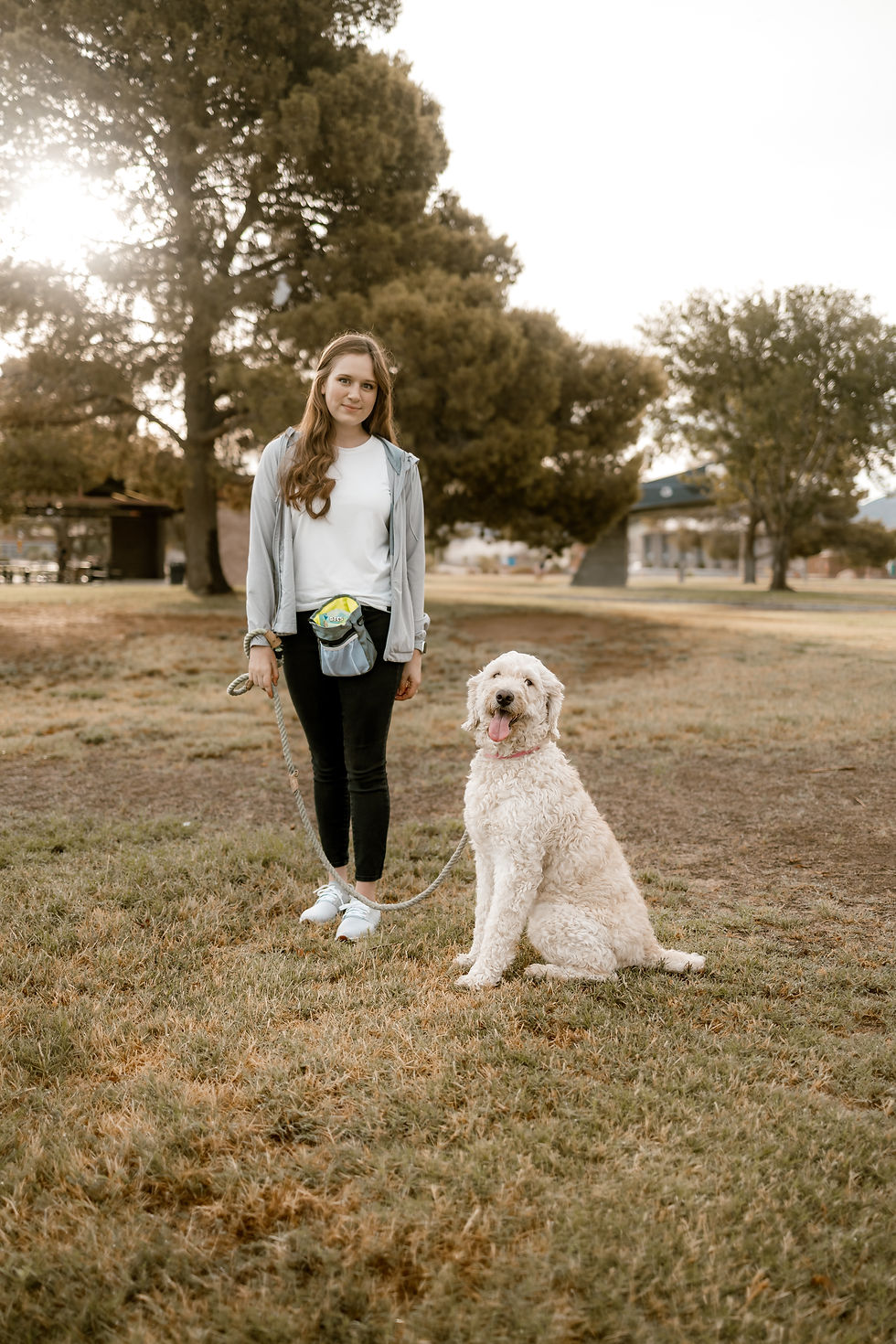Do you really want to be the leader of your "pack"?
- Jul 13, 2022
- 4 min read
Well for starters you're a human, not a wolf. If you're reading this it's also likely that your pet is a dog, not a wolf.

There is widespread, erroneous pop-psychology of being the "alpha" or showing your dominance. Theoretically, this idea comes from the fact that dogs descended from wolves.
In reality, dogs and wolves are completely different organisms with completely different behavior patterns. Dogs may have come from wolves, but science suggests that split happened from a now extinct wolf population more than 10,000 years ago.
A human mimicking modern day wolf behavior (i.e. being the "dominant" one) to domesticated dogs is not the correct way to communicate with a dog. Imagine an alien who kept humans as pets observing wild chimpanzees as an appropriate way to learn human behavior... Yes, we may have shared a common ancestor; however, our behaviors are no longer analogous between species.
Common examples of being a "pack leader" that come to mind are things like alpha rolling (physically forcing your dog onto their back to show them they should defer to you). Alpha rolling is generally considered outdated and cruel in the training community, but that doesn't mean pet parents know that! I've seen it happen many times. Well-meaning humans using this technique may cause confusion at best, and a painful bite at worst. The alpha roll arose from a group of scientists studying wolves in the 1940's. They observed "less dominant" wolves submitting to an "alpha" by willingly presenting their stomach and back. What people miss from interaction is that it is an offered behavior.
Alpha rolling our dogs is not only wrong because it is derived from an entirely different species, but also because in a dog's eyes we look crazy and unpredictable! It's a great way to quickly damage a bond and lose a dog's trust.
Here are some other common dominance myths I see or hear frequently:
In multi-dog households, “support the hierarchy” by giving “dominant” dogs treats first, before giving to “subordinate” dogs. There is no evidence that this has any impact on inter-dog relations, or any type of aggression. In fact, the laws governing Pavlovian conditioning would dictate an opposite strategy: Teach aggressive dogs that another dog receiving scarce resources predicts that they are about to receive some. If so practiced, the aggressive dog develops a happy emotional response to other dogs getting stuff, a helpful piece of training indeed. No valuable conditioning effects are achieved by giving the presumed higher-ranking dog goodies first.
Playing tug makes dogs aggressive. There is no evidence that this is so. The only study ever done found no correlation between playing tug and the incidence of aggression directed at either family members or strangers. The only thing to keep in mind is it might intensify unwanted behaviors or patterns that may already be present. Tug is, in fact, a cooperative behavior directed at simulated prey: the toy.
If a dog tries to exit doors ahead of you, they're dominant. There is not only no evidence for this, there is no evidence that going through doorways has any social significance to dogs whatsoever. In order to lend this idea plausibility, one would need to rule out the possibility that rapid doorway exit is simply a function of a dog’s motivation to get to whatever is on the other side, combined with their higher speed. Dogs walk faster than we do.
Dogs are pack animals with a clear social order. This one falls apart immediately upon scrutiny, because all the evidence suggests that free ranging dogs (pariahs, feral and semi-feral populations) don’t form packs. Dogs actually form loose, amorphous, transitory associations with other dogs.
Dogs have an innate desire to please. This concept has never been operationally defined, let alone tested. A vast preponderance of evidence, however, suggests that dogs, like all properly-functioning animals, are motivated by food, water and sex. Like many other animals, they are also motivated by play and access to bonded relationships, especially after an absence. They are also, like all animals, motivated by fear and pain—the inevitable tools of those who eschew the use of food, play etc. However much they cloak their coercion and collar tightening in desire-to-please rhetoric. So when a trainer says they are relying on this, make sure it’s not code for some sort of metal collar.
While I suggest you refrain from trying to be the alpha of your pack, that doesn't mean I want pet parents to let everyone run around loosey-goosey. Dogs thrive off of structure in their homes and routines. Impulse control training, management techniques, and behavioral modification are all appropriate ways to communicate with our dogs to coexist with them peacefully. Personally I have no desire to be a pack leader in my multi-dog household. A companionship built on trust and communication seems much more fulfilling. What dog behavior myths have you come across before?
Sources:
Origins and genetic legacy of prehistoric dogs, https://www.science.org/doi/abs/10.1126/science.aba9572
Nishida, Toshisada. "chimpanzee". Encyclopedia Britannica, 17 Nov. 2021, https://www.britannica.com/animal/chimpanzee. Accessed 13 July 2022.
Schenkel’s Classic Wolf Behavior Study, 1947




Comments